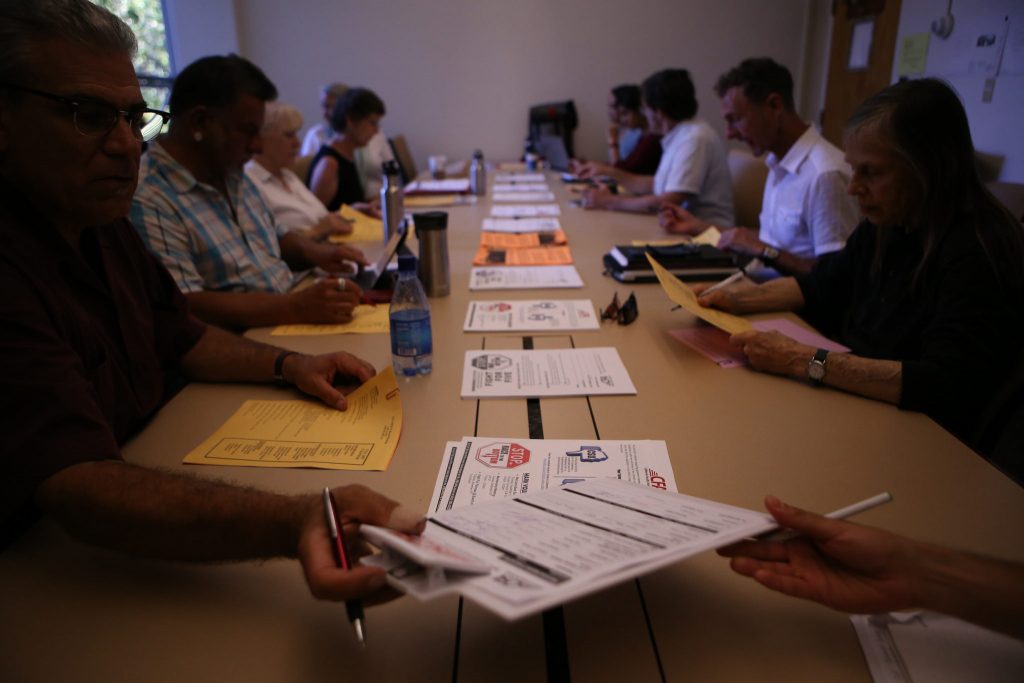SF State faculty are demanding higher wages as the California Faculty Association and California State University administrators renegotiate the current collective bargaining agreement.
The CFA, a union for CSU faculty and staff, is demanding a 5 percent general salary increase for all faculty as well as a 2.65 percent service salary increase for any eligible faculty for the next two years, according to a CFA collective bargaining update.

Sheila Tully, SF State CFA chapter president, said that many of her colleagues in and out of CFA feel that CSU administrators are undervaluing the work that faculty and staff do for the university system. There is a serious lack of investment in the faculty and students across the entire CSU system, Tully said.
“I think faculty feel disrespected,” Tully said. “The CSU is not a business. It’s an educational institution. Faculty are angry across the system; we think 5 percent is fair.”
Negotiations began in May 2015, and both sides met three times over the summer. The talks became unproductive in July, leading to the first rounds of mediation on Aug. 31. in Sacramento, according an update on the CFA website.
“At the end of the day it’s about respect. It’s about how you’re valued,” Tully said.
Faculty involved with the negotiations expressed frustration at the way CSU management and Chancellor Timothy P. White handled the university system. Lecturer and SF State CFA Vice President Georgia Gero-Chen said University administrators are placing money in unnecessary improvements to athletics and additional salary bonuses for themselves while losing sight of the CSU system’s mission to provide high quality education at an affordable price.

“The CSU does not understand its core mission,” Gero-Chen said. “We’ve reached the point where we are outraged, and hopefully that outrage can be channeled into action.”
The current salary for CSU faculty has made it difficult for teachers at SF State to live comfortable lives, according to Gero-Chen. She said many teachers resort to working two to three jobs around the Bay Area and that San Francisco has become so expensive that many faculty are forced to move to Marin County or the East Bay. Gero-chen said more than half of her paycheck goes to rent alone.
Toni Molle, CSU director of public affairs, said University administrators budgeted for a 2 percent salary increase and do not intend to change their stance.
“We believe our employees should be fairly compensated, but there is only so much money we can give,” Molle said. “What they’re asking for is beyond what we have budgeted. We have other things like campus infrastructure and student success initiatives we need money for.”
Molle said administrators have made efforts to invest in faculty by allocating over $129.6 million throughout the CSU system for projects related to compensation. Of that money, $64 million was designated for university faculty across all CSU campuses.
“We value our faculty and all our staff,” Molle said. “We are negotiating in good faith and we know that faculty is important to the CSU. We are committed to work with them in the bargaining process.”

Although the conflict is between faculty and administrators, CFA members strongly believe this issue impacts students, according to SF State CFA chapter Vice President Catherine Powell. CSU faculty have made numerous sacrifices over the past 10 years and they have become fed up with losing money doing a job they are passionate about, Powell said.
The situation has become so dire, according to Powell, that some teachers have contemplated leaving teaching all together, and University administrators’ unwillingness to raise faculty salaries is an indication that their priorities do not lie in maintaining the well being of the students or teachers experience within the CSU system. The administration’s emphasis on financial gain is coming at the expense of the teachers and their students, Powell said.
“The faculty and staff are fundamental to the work we do on these campuses,” Powell said. “The CSU is incredibly important. It’s the people’s university. It’s supposed to be meant for anyone who wants to go to school affordably.”







